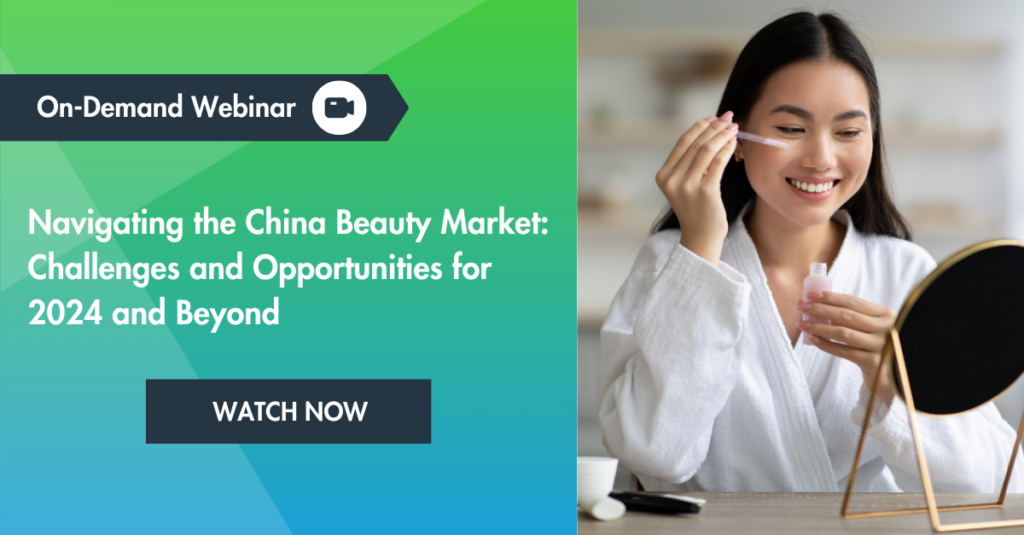For years, Singles’ Day has been one of the most anticipated retail events in China, bringing massive sales opportunities for beauty brands. However, recent shifts in consumer behavior and market dynamics have led to a rethinking of strategies.
Notably, the professional skin care segment remains one to watch. It is expected to advance at a healthy CAGR of 9% through 2028, though a slowdown from its historical CAGR of 14% from 2018 to 2023, according to Kline’s data. This continued growth will largely be driven by the retail channel, as leading marketers increasingly focus on e-commerce platforms.
So, what’s shaping Singles’ Day strategies for beauty brands, and how can they make the most of the opportunity to stay relevant in an increasingly crowded market?
1. Singles’ Day Expands to a Month-Long Event
Initially celebrated on November 11, Singles’ Day has evolved into a month-long event, with promotions starting as early as mid-October. This extended period provides brands with greater flexibility to build anticipation, spark excitement, and engage consumers through teasers, exclusive pre-sales, and themed content.
In 2024, Douyin led the charge by kicking off Singles’ Day promotions on October 8, while JD plans to extend its activities until November 13. Major platforms such as Tmall, JD, Kuaishou, and RED launch their Singles’ Day campaigns mid-October, planning to climax on November 11th and conclude the same day.
La Mer engages KOLs to produce over a hundred short videos on Douyin and RED, highlighting new product features through unboxings and gift recommendations. This approach broadens its reach and builds excitement around its offerings.
Proya structures its Singles’ Day promotions on Tmall into three phases, each featuring unique product sets to sustain consumer interest and appeal to different segments throughout the season.
L’Oréal Paris uses Li Jiaqi’s Tmall livestream channel to offer pre-sale discounts. Consumers can secure products at reduced prices by paying a deposit and using exclusive vouchers, with final payments due between October 21 and 24.
2. Multi-Platform Approach: Going Beyond Tmall for Singles’ Day Success
While Alibaba’s Tmall initiated the Singles’ Day frenzy, other e-commerce giants such as JD.com, Douyin, and Pinduoduo have joined the movement, expanding the event’s reach. Each platform brings unique features, such as JD.com’s focus on fast logistics or Douyin’s popular livestreaming format, allowing beauty brands to diversify their approach.
Lancôme offers platform-specific promotions for its Absolue face cream. On JD, it includes a complimentary eye cream, while on Tmall, it comes with two free gifts—tailoring each deal to the platform’s audience.
Comfy also customizes its Singles’ Day promotions based on the platform—on RED, it focuses on KOL endorsements, while on Tmall, it emphasizes discounts and free samples with purchases.
Proya operates seven Douyin accounts to maximize Singles’ Day engagement, with livestreams from 6 AM to midnight. Douyin sessions offer incentives such as iPad giveaways and regular lucky draws for additional product samples, showcasing Proya’s value and cost-effectiveness.
3. Shifting From Lower Discounts to Value-Added Offers for Singles’ Day
In the early years of Singles’ Day, extensive discounts were the main attraction. However, with intensifying price competition, many brands are shifting from discounts to value-added offers, such as deluxe samples and limited-edition gift sets. This strategy not only preserves brand value but also creates a more premium experience that resonates with beauty consumers who value personalization.
Proya
With a 50g Proya Ruby Cream purchase on Tmall, customers receive four 15g samples of the same cream, three facial masks, and two anti-aging masks. Proya also rewards members who spend 199 CNY or more with a choice of an additional cream or serum, appealing to value-conscious consumers.
L’Oréal Paris offers an Ampoule Mask promotion—buy 20 pieces and receive 30 more for free, with an extended expiration date on the free samples until 2027.
SkinCeuticals offers a deal on its 48ml A.G.E Interrupter, where a CNY 1,740 purchase includes four 15ml samples. The promotion also includes non-product gifts such as canvas bags and makeup cases.
4. Rationale Consumer Spending and the Rise of Local Brands
Chinese consumers are approaching Singles’ Day with greater caution and intentionality, especially as large-scale promotions now occur year-round. With livestreaming becoming a common way to sell products in China, consumers are used to receiving discounts and bonus products through this dynamic channel, even outside major sales events.
Masks and peels, sun care, and specialty treatments and serums are the best-performing product categories as Chinese consumers are increasingly focusing on skin health and targeted care. Each of these categories has seen sales growth in the 15–20% range in 2023, according to Kline’s data.
Local beauty brands are also taking the spotlight in China, with Singles’ Day sales on Tmall—long dominated by international beauty brands such as Lancôme and Estée Lauder—now led by the cost-effective Chinese brand Proya in 2023. Notably, nine domestic beauty brands, including Comfy, Winona, Chando, and Guyu, ranked among the top 20, reflecting a shift toward more thoughtful spending and ingredient transparency. Proya’s Ruby Cream, formulated with high-end ingredients such as ergothioneine, alpine edelweiss, and niacinamide— often associated with premium international products—resonates strongly with ingredient-conscious consumers, underscoring the rising appeal of local alternatives.
As Singles’ Day continues to evolve, it presents an opportunity for beauty brands to strengthen their presence in China’s competitive market. By shifting from price-based competition to strategies focused on extended promotions, value-driven offers, and multi-platform engagement, beauty brands in China can foster lasting consumer loyalty.
Explore future growth opportunities and strategic insights for navigating China’s dynamic beauty market with Kline’s scenario forecasting capability, which provides a competitive edge in a rapidly changing landscape.


